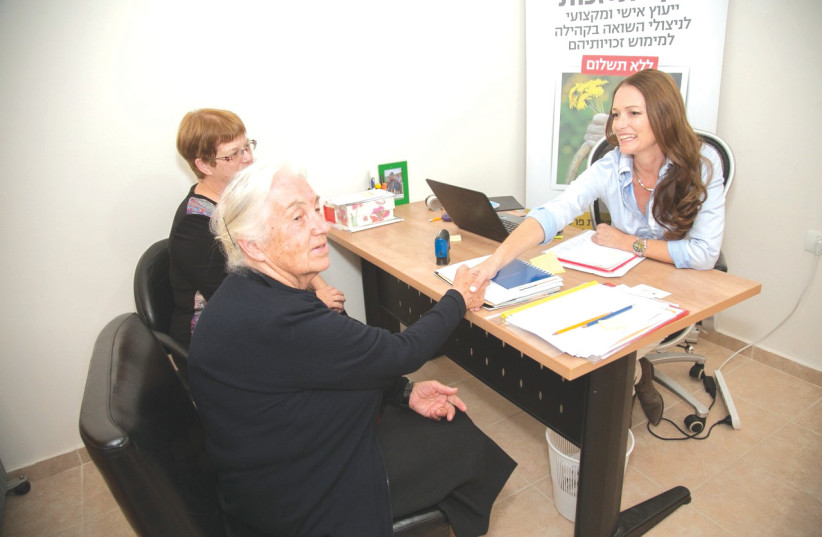The Justice Ministry on Wednesday held a conference highlighting 50 years of work by its Legal Assistance Division for society’s weaker sectors.
Speaking at the conference, outgoing Justice Minister Gideon Sa’ar quoted from the preamble to the law regarding providing legal assistance.
“The purpose of the law is to achieve justice,” he said. “It is incumbent on us to give equal opportunities and the appropriate tools to make sure that there is full access to justice, even for those to whom fate has not been kind.”
“The primary job of the legal system is to protect those whose voice goes unheard, and this was the reason for founding the Legal Assistance Division 50 years ago,” he added.
Practically speaking, Sa’ar said this meant giving free legal advice and support to those who cannot afford to pay for such services so that they will be able to enforce their rights in court.

There cannot be a situation where economically weaker sectors are oppressed and then get “stepped on” a second time by being unable to access the very justice system that could help balance the scales, he said.
Expanding legal services
Next, Sa’ar said the Legal Assistance Division has expanded over the years from three small offices that served only economically disadvantaged sectors to having offices all over the country and expanding to also aiding individuals with special needs.
Some of these special categories include victims of the underground slave trade, family members of a person who was killed and victims who have been placed in mental or other institutions against their will, he said.
He pressed for future governments to pass his proposed bill which would grant legal assistance to victims of sex crimes as early as the opening of a police probe.
This would be different from the current situation in which such victims only get full legal assistance at a much later stage in the case, sometimes only once their testimony becomes relevant at trial, he said.
In addition, the Legal Assistance Division must continue to assist all ethnic sectors of Israeli society, whereas minorities sometimes feel their suffering is invisible to authorities, Sa’ar said.
Nohi Politis, head of the Legal Assistance Division, said his unit’s work was part of a broader struggle against discrimination, oppression and weaker groups being labeled with negative stereotypes.
Moreover, the “struggle is a long and Sisyphean one” that can never be abandoned, he said at the conference, invoking the Greek myth of Sisyphus, who spends an eternity of futility trying to roll a rock up a hill without it falling down again but who never gives up.
Despite that difficult image, Politis said his unit’s struggle has “born fruit” and that the current reality of those efforts “far outweighs the original [more limited] vision of what it could accomplish when it was started in the early 1970s.
For example, he said, his office has dealt with hundreds of thousands of cases relating to women, children and the elderly in different at-risk situations. By way of comparison, his office had dealt with 20,000 referrals in 2001, which had jumped to more than 100,000 referrals in 2021.
In addition, Politis said his division helps Israel uphold its international law obligations since aspects of what his unit does to help weaker sectors are enshrined in global conventions that Israel has ratified.
“The primary job of the legal system is to protect those whose voice goes unheard, and this was the reason for founding the legal assistance division 50 years ago.”
Justice Minister Gideon Saar
There are also other values that are important to the state, which his division’s work promotes, such as transparency and general social welfare, he said.
Together protecting these values help maintain the public’s faith in state institutions, Politis said.
In certain family disputes, he said, his unit provides special separate representation to some of the children to protect their interests when a dispute between parents could potentially push that value to the side.
Finally, Politis said his division helps bankrupt persons navigate their insolvency process in a more stable and efficient way so that they can make a quicker economic comeback into society.
